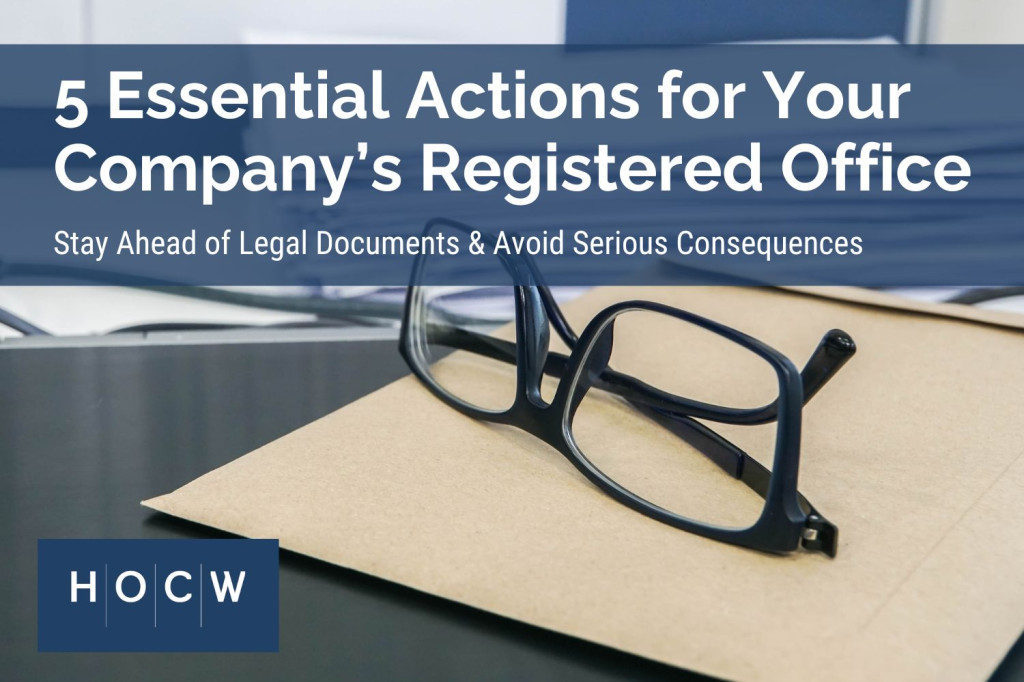Five Things you need to do with your Company's Registered Office Address
Many important documents are sent to registered offices. They often require prompt attention otherwise there could be serious consequences.
Here are five things you need to do with your company's registered office address.
Know the address
Ensure the registered office of your company (as recorded with ASIC) is up to date and is known to all those who control the company. (It's not unheard of for directors to forget whether the registered office is the office of their accountants, their lawyers, their current home address or their old home address or some other address.)
Put procedures in place for your mail to be forwarded promptly
If your registered office is the office of an accountant, lawyer or some other entity, ensure that they have procedures in place to forward mail on to you promptly.
Deal punctually with any formal legal notices received
Pay particular attention to creditor's statutory demands, any Court documents or tax office documents such as Directors' Penalty Notices, as strict time limits apply.
Know that a creditor's statutory demand is urgent
If a creditor's statutory demand is received, obtain urgent legal advice, noting the strict 21-day time limit to file and serve a Court application to set aside the demand.
Check the address the statutory demand lists
If a statutory demand lists a physical address for service of an application to set aside the demand, serve the application at the physical address – not the email address.
Consequences of not dealing with important legal documents promptly
One type of document in particular can be a real problem if it is not dealt with – your company could be put into liquidation. That document is the creditor's statutory demand under the Corporations Act 2001. This is a formal demand which claims that the company owes a debt. The debt does not have to be based on a court judgment or order.
What to do if you receive a Creditor's Statutory Demand - immediately!
Under the Corporations Act there is a strict 21-day time limit in which to respond to the demand. If the company has a genuine dispute about the debt, or an offsetting claim, it can apply to a court (the Federal Court or the Supreme Court) to set aside the demand. It is critical that the Court application, accompanied by a supporting affidavit, is filed with the Court and served on the (alleged) creditor – within 21 days of service. No extension of time is possible.
Application Dismissed - a recent example of a Federal Court decision
Sheraz Pty Ltd v Rumsley [2019] FCA 493 - the company filed with the Federal Court an application to set aside a statutory demand on the basis that there was a genuine dispute about the debt. That took place within 21 days of receipt of the demand. All fine so far. However, the company did not serve the application until emails were sent to the office of the creditor between 4.58pm and 5pm on the last day of the 21-day period. The statutory demand did not list an email address as an address for service. The lawyer who served the statutory demand did not actually open and read the email serving the application to set aside for over a week, due to personal circumstances.
Accordingly, the Court found that the application to set aside the statutory demand was not served until after the 21-day period. There was no scope to argue that the application had come to the attention of the person who served the demand within the 21-day period (which would have allowed a finding that there had been valid informal service within the 21-day period).
The application to set aside the statutory demand was dismissed. Subject to further possible arguments (which the Court decision noted), it would then be open for the creditor to apply to wind up the company on the basis that it is deemed to be insolvent.
Contact Matthew Hicks, Director & Principal Lawyer, Accredited Specialist in Commercial Litigation for further information or to assist with any particular concerns related to commercial litigation or insolvency.


